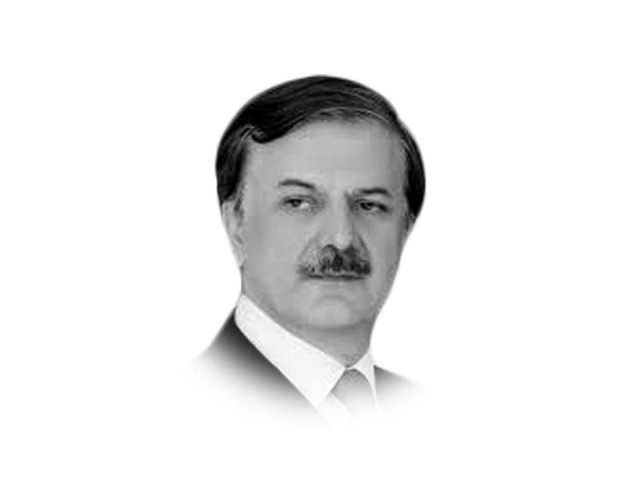Making democracy work for all
The leaders must not let the people down while there is still time

The writer was commerce minister from 2002 to 2007. He is chair and CEO of the Institute for Policy Reforms
Since then, I have met more people. From students to shopkeepers to the unemployed, all were apprehensive about the future. They perceive the new government to be more responsive and expect a lot from it. So, the top priority before our leaders today is to revive the trust of Pakistani people in the country’s political and state institutions. As we saw recently, not doing so carries great risk. There are emerging signs of a drift to alternative ideologies and in favour of any saviour that comes along with their dubious plan for the poor. We must build a stake for the common people in the future of the country.
I pen these thoughts as a consequence of my exchanges with common people. Here I write about relations between the state and the citizen. In future, I plan to discuss specific sectors.
The challenge before us today is not just to correct the deep shortcomings of past decades. It is also to create a new covenant between the people and the state by reinventing the paradigm for making decisions in the country. The weak segments of our country want what they feel is the right of all humans in a civilised society. However, it would not be easy to meet their expectation. Imperceptibly, and over many decades we have built in Pakistan a creeping alliance of the powerful. We now have a system under which government and markets function to favour the elite. Looking after the interest of the whole population does not fit in.
This is visible everywhere. Take the example of a political party’s proud claim, made until recently, about pro-business policies. Writing for Project Syndicate, Nobel laureate Joseph Stiglitz explains the idea well. Though his analysis is in the context of recent trends in the US economy, it applies equally to us. Using his logic, we see that ‘pro-business’ policies in Pakistan did not do much good and, selectively applied as they were, may have given us cronyism. They helped insulate some businesses from competitive forces. For the privileged, such policies allow a path to a whole set of non-transparent arrangements where they can access capital and gain contracts, exemptions or subsidies.
Sami Karam in Foreign Affairs writes, “Cronyism occurs when government officials and business elites collude.” Such an arrangement skews distribution and creates inefficiencies. There is no incentive for the elite to advance economic opportunities for everyone. This is evident also in how we frame discussion on the economy. Analyses of economic policy in Pakistan are wrapped in the language of inevitability. Its starting premise is that our economic weakness and the resultant dependence on external assistance is a given. Being a weak economy is not predestined or inevitable. Applying Professor Stiglitz’s logic again, it is safe to say that where the country stands today in terms of economic development and human progress hasn’t just happened. It is the direct outcome of policies and approach to development pursued over a long period of time.
There are many economic and societal factors that affect growth. But clearly political choice, made so far, has slowed progress in Pakistan. East Asia’s rapid growth has come from inclusive development that gave opportunity to all. They have built a modern economy because they have empowered their whole population to contribute.
Understanding this is important. There is no example of a society or economy succeeding without the state delivering essential services equitably. We must improve law and order, ensure progressive revenue collection, equitable access to credit and other public services. We may ask how is it that we build great highways, shiny city underpasses and high-tech warfare equipment, but cannot provide basic services to everyone. Because we successfully complete what we consider our priority.
Deconstruct it anyway, what the politics of policymaking has done is favour the interests of the privileged over common folks. This cannot continue if Pakistan must emerge as a strong society and economy. A country progresses when every adult can take part in its economic life. It stunts and festers when just a select few are active. And what we have in Pakistan is that many are often limited by opportunities. As Malcolm Salter of Harvard said, “Particularism lacks legitimacy in any governance regime claiming to be democratic.”
For the majority of the population, we so far have had an executive that does not deliver, courts that delay justice and one-window operations with windows closed.
So, who is working for the people, one might ask. For the state to grow, it has to be nurtured and needs to be invested in. How does that happen? It happens by keeping some myths intact and by trying to translate those myths into reality. One of those myths is that the people are sovereign. And of course, some countries in Europe and East Asia largely have made the people sovereign. But there are other countries where such sovereignty works as fiction. As someone famously said, we know “All power comes from the people. But where does it go.” We must follow East Asia’s example.
Published in The Express Tribune, November 23rd, 2018.
Like Opinion & Editorial on Facebook, follow @ETOpEd on Twitter to receive all updates on all our daily pieces.
















COMMENTS
Comments are moderated and generally will be posted if they are on-topic and not abusive.
For more information, please see our Comments FAQ